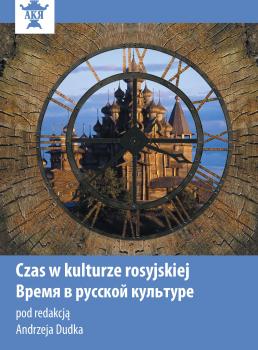The Problem of Time in А.F. Losev’s Fiction .......... 171
Streszczenie
THE PROBLEM OF TIME IN А.F. LOSEV’S FICTION
The article looks into the interdisciplinary problem of interrelation between a philosophical theory and relevant artistic expression using the prose of the outstanding Russian thinker Alexey Fedorovich Losev (1893 – 1988) as an example. The topic under discussion is the problem of time actively elaborated in A. F. Losev’s philosophical works of the 1920s – both in the published ones (the book Music as a Subject of Logic) and in the surviving manuscripts (the article Art written for the State Academy for the scientific study of art (GAKhN), an unpublished fragment from the book The Philosophy of Name). Formulated in the 1920s the theory of time, viz.: the Meaning, eidos is eternal while „the Other”, „meon” is „a principle of temporality”, eternal only „as a principle” – this theory becomes the starting point for A.F. Losev’s artistic pursuits of the 1930s when, after his arrest and labour camp imprisonment, he turns to the creation of fiction. This theory is responsible for the fact that in A. F. Losev’s prose, on the one hand, personal, subjective time is always included in the eternal as well as in the historical time, and, on the other hand, that in every character’s biography „a unique eternity is materialized”. In his different works, placing the same main character, Nikolai Vershinin, in quite unlike historical and social environments the author shows how one and the same personal myth (eidos, the meaning, the eternal) gets a different social, historical and temporal manifestation.The article looks into the interdisciplinary problem of interrelation between a philosophical theory and relevant artistic expression using the prose of the outstanding Russian thinker Alexey Fedorovich Losev (1893 – 1988) as an example. The topic under discussion is the problem of time actively elaborated in A. F. Losev’s philosophical works of the 1920s – both in the published ones (the book Music as a Subject of Logic) and in the surviving manuscripts (the article Art written for the State Academy for the scientific study of art (GAKhN), an unpublished fragment from the book The Philosophy of Name). Formulated in the 1920s the theory of time, viz.: the Meaning, eidos is eternal while „the Other”, „meon” is „a principle of temporality”, eternal only „as a principle” – this theory becomes the starting point for A.F. Losev’s artistic pursuits of the 1930s when, after his arrest and labour camp imprisonment, he turns to the creation of fiction. This theory is responsible for the fact that in A. F. Losev’s prose, on the one hand, personal, subjective time is always included in the eternal as well as in the historical time, and, on the other hand, that in every character’s biography „a unique eternity is materialized”. In his different works, placing the same main character, Nikolai Vershinin, in quite unlike historical and social environments the author shows how one and the same personal myth (eidos, the meaning, the eternal) gets a different social, historical and temporal manifestation.





